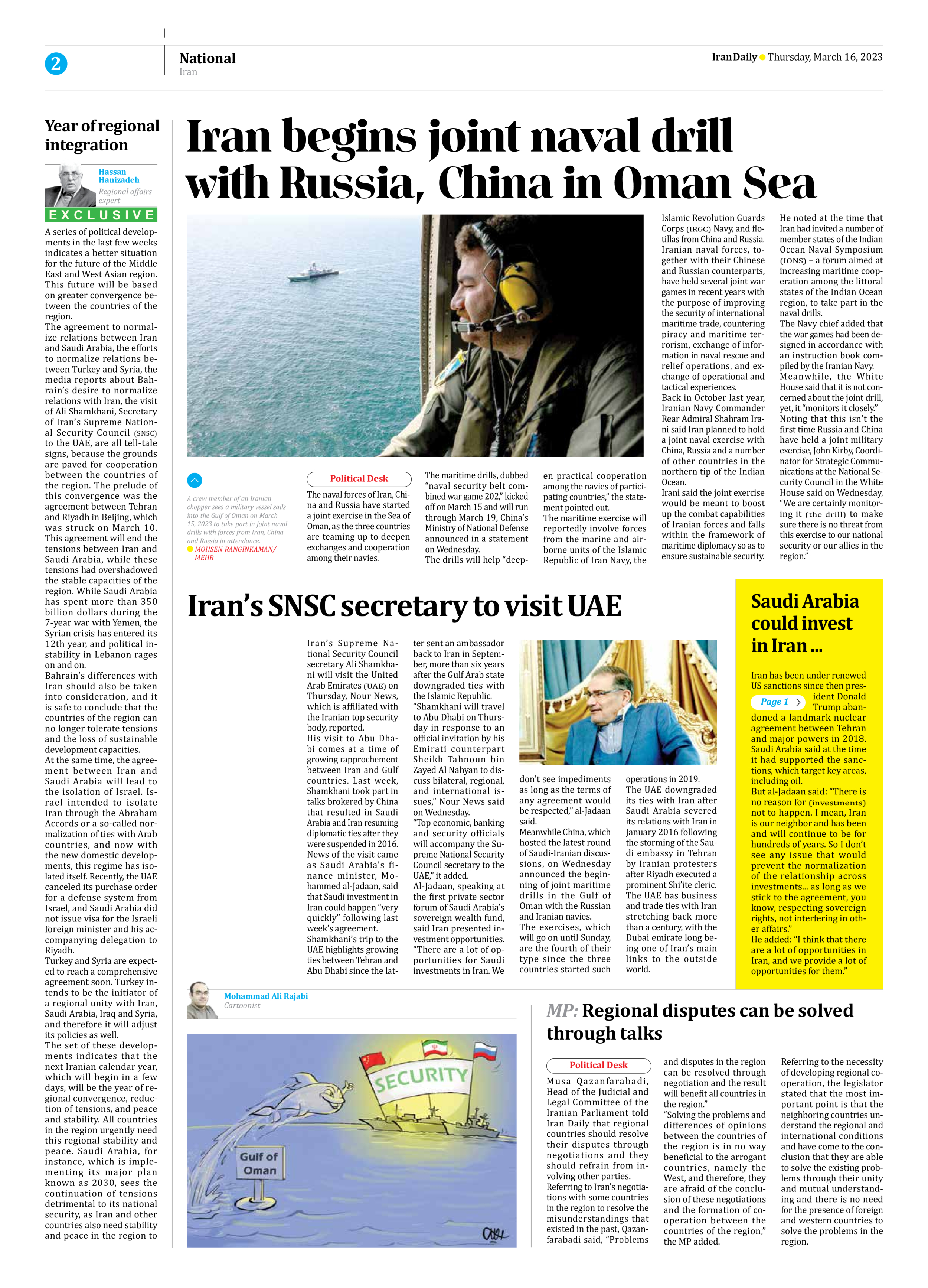
Year of regional integration
Hassan Hanizadeh
Regional affairs expert
A series of political developments in the last few weeks indicates a better situation for the future of the Middle East and West Asian region. This future will be based on greater convergence between the countries of the region.
The agreement to normalize relations between Iran and Saudi Arabia, the efforts to normalize relations between Turkey and Syria, the media reports about Bahrain’s desire to normalize relations with Iran, the visit of Ali Shamkhani, Secretary of Iran’s Supreme National Security Council (SNSC) to the UAE, are all tell-tale signs, because the grounds are paved for cooperation between the countries of the region. The prelude of this convergence was the agreement between Tehran and Riyadh in Beijing, which was struck on March 10. This agreement will end the tensions between Iran and Saudi Arabia, while these tensions had overshadowed the stable capacities of the region. While Saudi Arabia has spent more than 350 billion dollars during the 7-year war with Yemen, the Syrian crisis has entered its 12th year, and political instability in Lebanon rages on and on.
Bahrain’s differences with Iran should also be taken into consideration, and it is safe to conclude that the countries of the region can no longer tolerate tensions and the loss of sustainable development capacities.
At the same time, the agreement between Iran and Saudi Arabia will lead to the isolation of Israel. Israel intended to isolate Iran through the Abraham Accords or a so-called normalization of ties with Arab countries, and now with the new domestic developments, this regime has isolated itself. Recently, the UAE canceled its purchase order for a defense system from Israel, and Saudi Arabia did not issue visa for the Israeli foreign minister and his accompanying delegation to Riyadh.
Turkey and Syria are expected to reach a comprehensive agreement soon. Turkey intends to be the initiator of a regional unity with Iran, Saudi Arabia, Iraq and Syria, and therefore it will adjust its policies as well.
The set of these developments indicates that the next Iranian calendar year, which will begin in a few days, will be the year of regional convergence, reduction of tensions, and peace and stability. All countries in the region urgently need this regional stability and peace. Saudi Arabia, for instance, which is implementing its major plan known as 2030, sees the continuation of tensions detrimental to its national security, as Iran and other countries also need stability and peace in the region to advance their development
plans.







